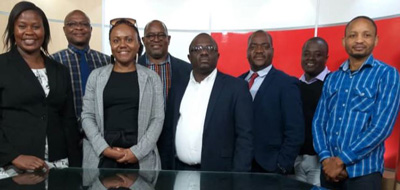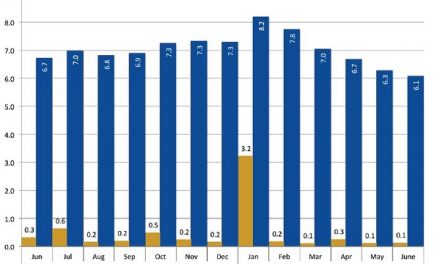
Regional broadcasting body makes strides in changing media landscape

The Southern Africa Broadcasting Association Secretary General Cecil Jarurakouje Nguvauva this week hailed SADC Public Service Broadcasters and governments of SADC for their unwavering support and contribution to various projects that SABA is rolling out.
The Secretary General said regional broadcasters’ involvement and participation in all the activities of the Association, which is made possible by their respective governments, continue to add substantial value to the association, while shaping the media landscape in the region.
Nguvauva is of the opinion that since the formation of the association, many projects have been implemented successfully because members were responsive and supportive.
“SABA and its members have completed a gender mainstreaming study in the region that was a resounding success and regarded as one of the best by international organizations such as the UNESCO. This report is currently being used by international bodies around the world to measure success stories of gender mainstreaming in media. Had it not been for the broadcasters, SABA could not have succeeded in putting together the report for publication and circulation,” Nguvauva added.
The association and its members have of late added another success story to its fame, by im-plementing the regional flagship Television News Programme, Eye on SADC. The programme reflects news from the region through the lenses of the regional broadcasters and has been accepted by many as one of the excellent television programmes SADC is currently sharing.
The programme was piloted in only 5 of the 16 territories and has grown its presence to other centres across the SADC region. The next implementation phase of the project will see the pro-gramme rolling out to the Portuguese speaking territories, being Angola and Mozambique.
Nguvauva has recently concluded a visit to 4 broadcasters in SADC, where he led a delegation comprising the Chairperson of the SABA Implementation Committee and the Editor of EYE on SADC.
The visit was intended to expand the newly established news programme Eye on SADC footprints to other territories, while gauging how the programme has impacted those countries where it is being broadcast in SADC.
“We had mixed feelings about the programme before, but after visiting the regional broad-casters, albeit brief, we have learnt that we are on the right path. We only have to continue to impress our audience more and provide them with what they need through our programming,” Nguvauva maintains.
Eye on SADC TV News programme is regarded an immutable niche product that came to fill a vacuum in the regional content and news exchange arena between public service broadcasters.
The programme that continues to grow in the region, has laid a foundation for a strong public service coordination. It stands to build a strategic collaboration between free to air broadcasters within SADC.
The programme serves as a beacon of hope for many broadcasters on the continent, as it has demonstrated that Africans can stand together and drive their own product without any reliance on foreign influences.
The delegation has had a number of meetings with some management teams of the various regional broadcasters and discussed further involvement of the organizations– in the planned projects of the association.
The SABA Secretariat is working towards setting up facilities and equipment in place to broad-cast the upcoming SADC Heads of State and Government Summit, set for 17 and 18 August in Dar es Salaam, Tanzania. This will be the first ever SADC TV initiated live broadcast of an event happening on the continent.
The task team that will work towards the broadcast is expected to be set up by the SABA Board meeting on 28 June in Swakopmund.
Caption: SADC TV Implementation Committee Chairperson, Mncedisi Mayisela (Eswatini), SABA Secretary General, Cecil Nguvauva (Namibia), Eye on SADC Editor, Jaeneth Haipare (Namibia) with the Newsroom Team from Malawi Broadcasting Corporation (MBC).










































